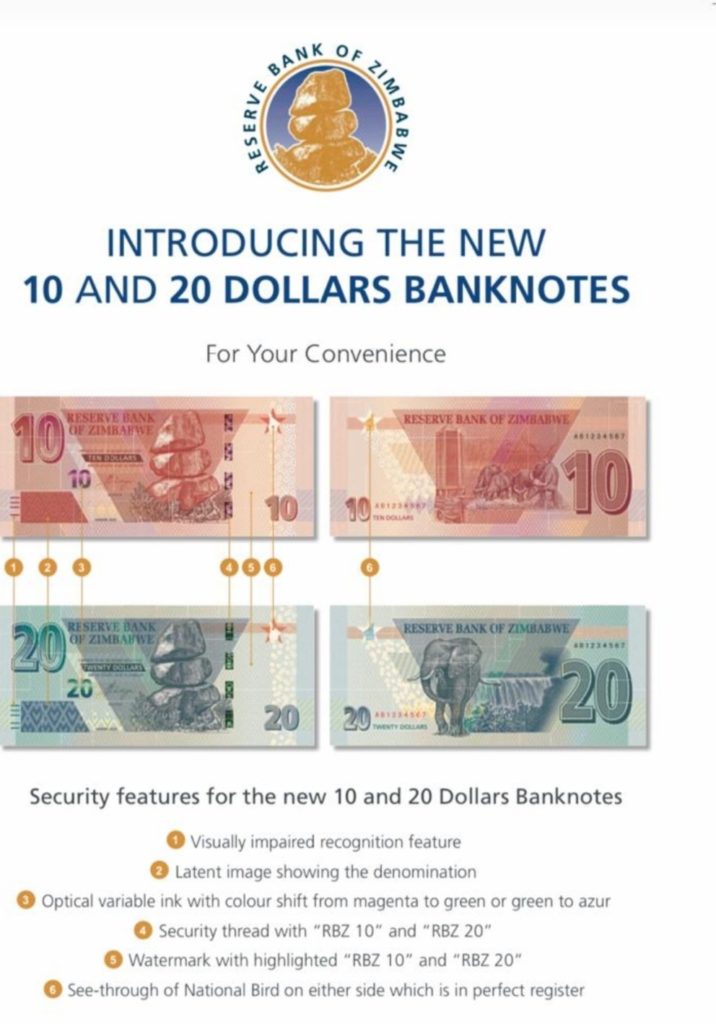
The addition of new ZWL$10 and ZWL$20 dollar notes to the country’s currency will provisionally alleviate cash shortages, but beyond that the money will likely stoke inflation because it is not backed by production, economic analysts have said.
Denford Mutashu, president of the Confederation of Zimbabwe Retailers, an association of retailers, said he hoped that the new notes will replace the ballooning RTGS balances, one of the chief causes of a weakened exchange rate.
“The transport and the informal sectors have continued to demand cash as a mode of transaction, putting pressure on consumers to look for cash to purchase goods and services. So, we hope the cash will be made available to the needy population, because if it falls in the hands of the few that manipulate it, this will cause much bigger problems for the economy.”
Albert Makochekanwa, an economist and lecturer at the University of Zimbabwe, said the new high value notes will assist consumers in transcations that require cash such as paying bus fares and buying vegetables.
“I don’t see the new money stimulating much economic activity. Rather, I see the potential for inflationary tendencies because many of the bank notes will be sold in the streets, and that will put pressure on the exchange rate,” Makochekanwa said.
Makochekanwa and Mutashuboth pointed out that the injection of new money into the economy must be accompanied by adequate production of goods and services in the economy.
On May 19, some banks began issuing the ZWL$10 notes, following last Friday’s announcement by the Reserve Bank of Zimbabwe (RBZ) that it was adding ZWL$10 and ZWL$20 bank notes to the country’s currency. Before the announcement, the ZWL$5 note was the highest note.
While the ZWL$10 banknote started circulating on Tuesday, John Mangudya, the central bank governor, said the ZWL$20 banknote will start circulating during the first week of June 2020.
The RBZ also adjusted the amount of money a depositor can withdraw from a bank. The withdrawal limit has been increased from ZWL$300 to ZWL$1,000 per week, effective from Tuesday.



